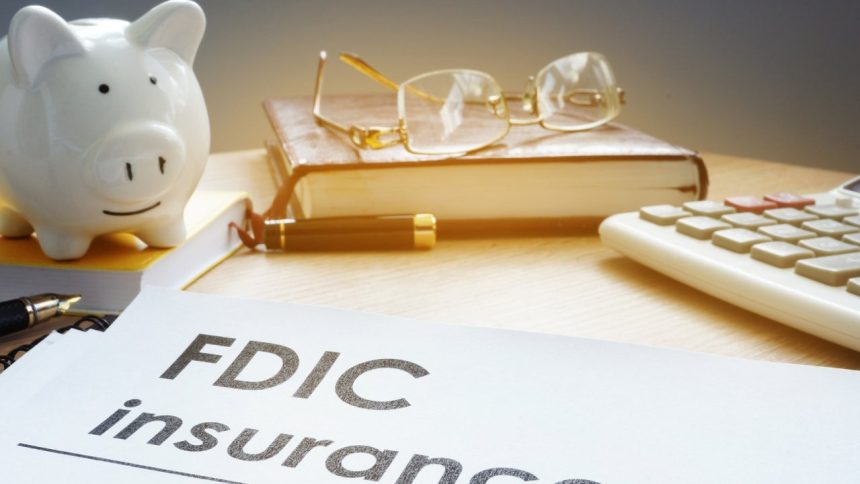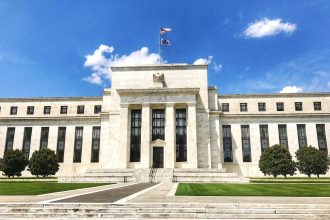Many banks offer money market accounts as a place to earn some interest on your money, with easy access to the funds when you need them. While a money market account comes with the perks of interest and liquidity, it’s also important to make sure your funds are protected through federal deposit insurance.
Deposits in a money market account are protected, up to a maximum amount, when the account is with a bank insured by the Federal Deposit Insurance Corp. (FDIC) or a credit union insured by the National Credit Union Administration (NCUA).
What is a money market account?
A money market account is a deposit account that often combines some features of both savings and checking accounts. Like a savings account, a money market account bears interest — and like a checking account, a money market account may come with a debit card and check-writing privileges.
Uses for a money market account
- Earning interest: Money market accounts typically earn interest, so your money will grow as you save it for emergencies or other purposes. When deciding whether it’s the best place for your savings, compare the APY offered by a money market account with the APY you can receive from a high-yield savings account.
- Writing checks: Many money market accounts come with check-writing privileges, so you’ll be able to use them to pay bills or other expenses. Unlike checking accounts, however, money market accounts often limit the number of checks you can write each month.
- Making debit card transactions: Some money market accounts come with a debit card. Like check-writing, however, there’s often a limit on the number of debit transactions allowed per month.
- Keeping your funds in a safe place: A money market account can be a safe place to stash your savings, as long as it’s with an FDIC-insured bank or NCUA-insured credit union, and your balance is within the limits and guidelines.
FDIC insurance: What it is and how it protects your money
Established in 1933, the FDIC is a U.S. government corporation that protects consumers’ money if a bank were to fail and close its doors. If a bank fails, the FDIC either issues a check to its depositors or transfers the bank’s funds to another insured bank.
The FDIC guarantees the safety of bank consumers’ money for up to $250,000 per depositor, per FDIC-insured bank, per ownership category. This insurance covers traditional bank deposit products, such as money market, savings and checking accounts.
NCUA insurance: Protection for accounts at credit unions
Similar to the FDIC, the NCUA is a government agency that protects money in accounts at credit unions. The NCUA has similar rules and processes to the FDIC, including the limits on how much of a depositors’ balance is covered.
At NCUA credit unions, funds in money market accounts and other accounts are insured in the event the credit union were to fail and close down.
Are money market accounts safe?
If a money market account is with an FDIC-insured bank, or NCUA-insured credit union, your deposits are protected as long as your balance is within the imposed limits and guidelines of the government agencies. This means you won’t lose your money if the financial institution were to fail.
The majority of money market accounts are with federally insured banks and credit unions. You can use the FDIC’s BankFind Suite to confirm that your bank is FDIC insured. Likewise, you can search the NCUA’s database to determine whether a credit union is insured through the NCUA.
Your savings in a money market can lose purchasing power over time, however, due to inflation. For instance, if a money market account earns 2 percent APY and the annual inflation rate is 4 percent, the funds in your money market account have lost 2 percent of their purchasing power. You have more purchasing power if your money market account’s APY is higher than the rate of inflation.
The money market account offered by Ally Bank is an example of an FDIC-insured money market account. The account earns a competitive yield, and it also comes with a debit card and checks.
What happens if a bank fails?
You won’t lose your funds in a money market account (or a savings or checking account) if your financial institution fails and is forced to close its doors, as long as your money is with a federally insured bank or a credit union. Your balance also needs to be within the imposed limit of $250,000 per depositor, per insured bank, per ownership category.
The FDIC will notify you if your bank fails, and it will either transfer your money to another FDIC-insured bank or issue a payment to you directly.
Bottom line
Like savings and checking accounts, money market accounts at many banks are federally insured. As long as your balance amount is within the guidelines, you won’t lose your money should the financial institution fail and close its doors. As such, when shopping around for a money market account, make sure it’s with an FDIC bank or an NCUA credit union.
FAQs
-
Federal deposit insurance covers traditional bank deposit products, such as money market accounts, checking accounts, savings accounts and certificates of deposit (CDs).
-
If a person has money market accounts at two FDIC-insured banks, each account will be insured separately up to the established limit of $250,000 per depositor, per FDIC-insured bank, per ownership category.
-
A federally insured money market account may earn a competitive APY, making it a good spot for maximizing your interest, while keeping your money safe. Before opening a money market account, it pays to shop around for the best rate, and also to compare money market account APYs with those of high-yield savings accounts.
Money market accounts can also come in handy for money management, when they allow for check writing and debit card use. However, a money market account may limit the number of these transactions that are allowed per month.
Read the full article here
















